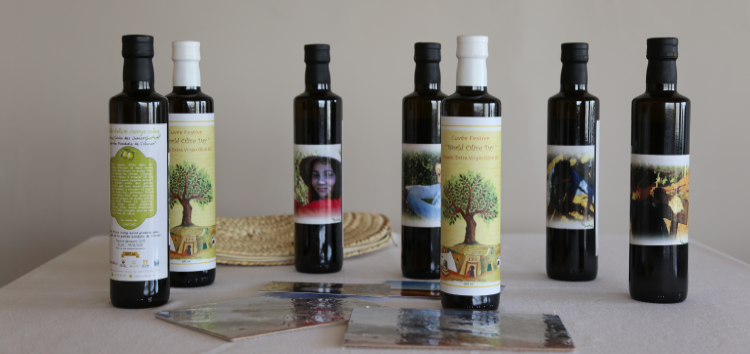Getting the best out of olive oil

EBRD, FAO and EU support Tunisian producers in their export ambitions
In Tunisia, the harvest season for olives is about to start. There are more than 300,000 olive growers and about one million people in the country who depend on a good season and strong harvest.
The EBRD and the Food and Agriculture Organization of the United Nations support the production of local extra virgin olive oil. This includes innovative training activities, supported by European Union funds, on how to make high-quality olive oil and promote it to promising export markets.
Training chefs and millers
Thirty restaurant and hotel chefs gathered in the coastal town of Sousse in October to learn more about the distinct qualities of Tunisian oil. How does the fruity taste of local extra virgin olive oil affect the taste of fried potatoes? Which oil will enhance the flavour when the dish is served with a splash of mayonnaise?
“In Tunisia, our chefs often lack knowledge about olive oil. The problem is that high quality products aren’t well known or understood,” says Slim Fendri, owner of Domaine Fendri in Sfax. “At the training, chefs learned how to identify excellent olive oil, which will help us distribute it more widely.”
A blind tasting helped them to recognise the subtleties in flavour. Many of the chefs work in international or tourist restaurants, so they can attract attention to and spread the word about the product. Tunisian olive oil is not yet well known globally, although it has been awarded various medals at trade shows abroad.
Production matters – from start to finish
Millers, who press the oil, play an important role in ensuring a high quality product. They were therefore treated to a second workshop, which explained the various steps to obtain extra virgin olive oil.
Timing is vital: freshly picked olives have to be processed within a maximum of 24 hours. Even minor damage to olives at the time of harvest or preventing them from “breathing” during transport can trigger enzymatic reactions. These, in turn, reduce antioxidants and generate negative aromas. This means that farmers who do not possess their own mills need to organise logistics and transport to meet the tight schedule.
Investments in modern pressing technology also pay out for the final product: maintaining the exact temperatures needed and the right amount of oxygen contributes to obtaining a higher quality of extra virgin olive oil, rich in antioxidants and aromas and with a longer shelf life. Finally, producers should ensure good practices from start to finish: proper pruning and harvesting techniques at olive groves, and adequate transport and storage in a low-light environment, to name a few examples.
“It was a scientific day,” says Ali Hammami, the deputy director of the Zaghouan Regional Commissariat for Agricultural Development. “We took part in a tasting session and noted the very high quality of olive oil. I hope that after today, our Tunisian agriculture and farmers will succeed in providing an even higher quality of olive oil.”
In total, around 100 participants took part in these workshops in Zaghouan and Siliana. They included professionals and agricultural experts, who will continue the training activities in the future, alongside official partners.
The activities are part of a wider programme of the EBRD and EU to boost trade and competitiveness in Tunisia and Morocco as well as Jordan and Egypt.
About 80 percent of Tunisian olive oil is exported to the European and international markets. Offering a high-quality product will benefit consumers and it will also help local farmers, millers and producers to reap the rewards of the upcoming harvest season.
Watch our video on how to make olive oil with a local producer in Tunisia.
